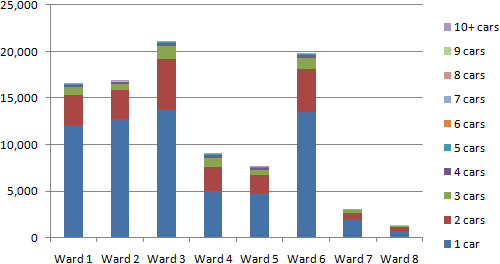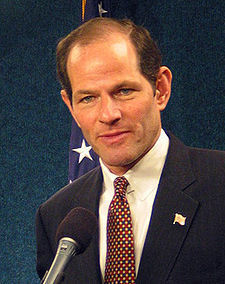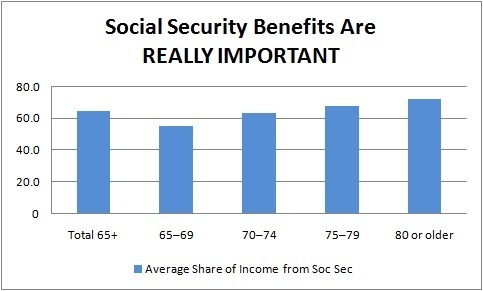Matthew Yglesias's Blog, page 2307
May 18, 2011
Thirty!
Folks. Today is my thirtieth birthday. Thirty! No more young journalist panels for me. No more ability to relate to college students when I get invited to speak on campus. Just back pain and a growing sense that people ought to get off my lawn. It's a sobering experience (though not quite as sobering as my increasing inability to sleep off a hangover).
But 29 was a great year, and I'd like to thank all the readers out there for being a part of its greatness.


May 17, 2011
Endgame
What do you do with a revolution?
— The success of Bridesmaids.
— Rick Perry considering presidential bid.
— Perry's path to the nomination seems so obvious that you have to wonder what skeleton in the closet is holding him back.
— Liberal brains and conservative brains (PDF).
— Jane Mayer on Obama's anti-whistleblower crackdown.
— Debunking the right's latest Affordable Care Act conspiracy theory.
— Rick Santorum says torture victim John McCain doesn't understand how torture works.
Hole's "Rock Star" is an underrated slice of nineties culture.


Lisa Edelstein Leaves 'House,' Lets Someone Else Ration Healthcare
By Alyssa Rosenberg
The news that Lisa Edelstein is quitting House is a tragedy for people who want to see more hot Jews and competent administrators in our mass media. Our popular culture, particularly our procedural shows, are heavily skewed towards storylines where our Slightly Rebellious Heroes Tell The Administrator To Shove It And Save Lives, usually by continuing to investigate crimes or treat patients. Usually, the immediate supervisors of those Slightly Rebellious Heroes are on their side, rather than on the side of the higher-ups. We have very few shows where the administrator saying no is a sympathetic figure, much less a romantic or heroic one. Cuddy was the very rare exception.
That said, part of the reason Cuddy gets to be a Hero Administrator to the audience is that she knuckles under to House his team pretty regularly. Unless she thinks she's getting a career $100 million value out of House (plus the $50,000 she's built into the annual budget to defend him from lawsuits), blowing up a relationship with a major donor to defend his continued employment may not have been such a great call. Also, unless Princeton-Plainsboro Teaching Hospital is in every other area of practice the single most efficient hospital on the planet, House's team must drive up average health care costs like crazy, much of it spent on testing and treatment that lead absolutely nowhere because, as we all know, diagnostic insights arrive as bolts out of the blue. Atul Gawande would probably tell Cuddy to fire House and invest in a really good preventative care program. But in the world of television, if she followed his advice, Cuddy would just be another evil bureaucrat.
To a certain extent, Cuddy's behavior is fairly realistic. As that Gawande article points out, hospitals have strong incentives to order as many tests and as many procedures as possible totally irrespective of how much they actually improve patients' health. And it may be that House is part of a larger cycle: some folks have theorized that the show contributes to patients' desire for heroic care and more tests and procedures. I'm glad we had an image of a smart, savvy, sympathetic woman administrator on television for as long as we did. I just wish she was a hero for advocating for things that were actually good for us.


Automobile Subsidies Are Regressive
One of the really strange conceits of DC local politics is that policies favorable to car owners are often claimed to be a distributively progressive policy in contrast to all these rich yuppies who favor less auto-centric policies. This is totally backwards:

To me, this is common sense. Cars are expensive. Metro and the bus are cheaper. Walking and bicycling are even cheaper. Consequently, car ownership is most widespread in the highest income Wards—one, two, three, and six—and lowest in the poorest Wards, six and seven. Obviously this doesn't prove that the relationship holds on an individual level basis, but it's suggestive empirical confirmation of the theoretically predicted result that ownership of expensive items (cars) should correlate with income. Higher parking fees, lower regulatory parking minimums, and greater investment in non-automotive transportation are both distributively progressive policies as well as being good for the environment.


The Most Important Rule Of Surviving A Political Sex Scandal Is: Don't Resign!

Writing in Slate, Chris Beam tries to explain what it is that causes some politicians to survive infidelity scandals while others lose out. He says "Politicians pay a price only when they commit 'infidelity plus'" of which "the most common variety is infidelity plus deceit." He also says that "Another exception is infidelity plus crime."
I think that this is wrong. What you need to do to survive infidelity is (a) be an incumbent and (b) don't quit! David Vitter cheated on his wife with a prostitute. That's a crime. Bill Clinton cheated on his wife with an intern, and then he lied about it. But they both survived. The key difference between them and Elliot Spitzer is that Spitzer resigned. As I've written before the key thing any politician under attack needs to do is get his co-partisans on his side. When scandal breaks, there's naturally going to be some sentiment that the wrongdoer ought to step down for the good of the party. And maybe he should! But if he's able to clearly signal that he won't then suddenly everyone else needs to defend you for the good of the party. And elite signaling is very important in politics. If your copartisans are all defending you, then the controversy becomes just another example of partisan politics. That doesn't guarantee victory, but it does mean that if the economy's at your back (Clinton) or you have a safe seat (Vitter) that you're fine.
Eliot Spitzer is, as we speak, fully rehabilitated in American society and hosts a mainstream television show. America will forgive a lot. But if you quit, you can't survive.


Non-Violent Protests In Palestine Greeted With Violent Response
Item:
"I was shot at close range with a high-velocity metal tear gas canister… When it hit me, it tore off a part of my scalp," says Christopher Whitman, a 25-year-old American student and activist who was seriously injured when he was shot by Israeli forces while attending a West Bank protest on Friday. At the time of the shooting, Whitman was recording video of the weekly nonviolent protest against the Israeli separation wall in the West Bank.
See also . But I'm going to quote myself from back in October:
But of course as it turns out the IDF isn't just folding immediately upon contact with non-violent tactics. Instead, Abdallah Abu Rahmah who was leading non-violent resistance in the village of Bil'in was sentenced yesterday to 12 months in prison. Some people I've spoken to here say this goes to show that non-violence is hopeless and that a return to armed intifada is inevitable. They may be right about the inevitability, but I think they're wrong about the hopeless part. Your Gandhis, your Martin Luther Kings, and your Nelson Mandelas all spent time in prison and prevailed in the end. The point, however, is that it only works if it captures the attention of the world so here I am paying attention.
The Washington Post editorial page and other outlets want to make this all about deliberate provocations by the Syrian government. But while the Syrian government certainly does enjoy a good provocation, people who see that as all that's happening are being fools or liars.


Unseasonable Thoughts On Social Security
Conventional wisdom in Washington is that Social Security benefits should be cut, and probably cut in a distributively progressive way such that the top third or so of seniors bears the brunt. I think this is wrong. Consider Jared Bernstein's chart of the importance of Social Security to most seniors:

That's a lot. But it's not everything. So where else does the money come from? Well:
— Defined benefit pensions.
— Labor income.
— Private savings.
These three alternatives are all deeply problematic. The problems with defined benefit pensions in the public sector (chronic underfunding, etc.) are well-known, and in the private sector those problems are even more severe. Labor income is not a realistic option for people over a certain age. And private savings are, frankly, a disaster. As a country, we've tried to deal with the decline of defined benefit pensions by encouraging the mass middle class to engage in private retirement savings with 401(k) plans, IRAs, etc. And it doesn't work. On the one hand, people don't save enough. On the second hand, the tax policy is deeply regressive. On the third hand, virtually 100 percent of the management fees extracted from customers through these vehicles are value-destroying rents. On the fourth hand, it's extraordinarily difficult for a middle class person to properly diversify his portfolio. And on the fifth hand, widespread ownership of index funds and mutual funds undermines corporate governance.
Consider an alternative model of financing widespread retirement. Instead of a fraction of your wages going (or not) into a 401(k) fund, a fraction of your wages could be sucked up by the government. The idea would be to set this fraction at roughly the "right" level, what people would be saving did they not suffer from shortsightedness, akrasia, and (justified) fear that most savings vehicles are scams designed to extract management fees. Then upon reaching retirement age, you'd be paid a defined benefit pension by the government that's supposed to offer roughly 100 percent of what a normal elderly person needs to live on. In order to make this tax-and-pension system incentive-compatible, the level of benefits you get would be proportional to the amount of money you paid in. Earn more as a worker and you'll pay more in taxes, but then get more in benefits at the end. But we don't need to be totally insane paternalists about this. We should "cap" the quantity of wages that are subject to the tax at some threshold in the $100-$200k range. People who earn more than the cap would max out their tax liability and also their benefit eligibility. These wealthy individuals, along with those who have large amounts of investment income, would presumably additional money in the stock market. If said wealthy individuals lose their money, that's not so bad. They can bear the risks. And they'll be in a much better position to exercise a meaningful corporate governance function.
This hypothetical program I'm describing is, of course, basically just what Social Security is right now. Except that Social Security taxes are a bit too low and the program is a bit too stingy.


American Urbanism's Weather Problem
Lydia DePillis offers us some exciting new data from Washington, DC's bike sharing program:

Growth! But even amidst the growth pattern of a successful and brand-new program, we can see the outlines of a seasonal pattern. People like to ride bikes when the weather is good. And over the long-term, we either need to over-provide bike infrastructure for the winter months or under-provide it for the spring and fall. The problem is particularly intense for a bike sharing program, since the targeted users are precisely the marginal cyclist rather than the hard-core bike commuter.
I'll just observe (and not for the first time) that we're generally cursed with a piece of bad luck in this regard in the United States. Such activities as walking for 25 minutes, standing outside to wait for a bus, or riding a bike are much more pleasant to undertake in good weather than in bad weather. Which is to say that if you took the Boston Metropolitan Region exactly the way it is and transplanted it to San Diego, you'd almost certainly have more people walking/busing/biking to work than you do in the actual so-cold-I-want-to-die Boston or the actual auto-oriented San Diego. And these things have tipping points. More bus riders means it's cost effective to run buses more frequently, which makes the bus more appealing. But the vast majority of our walkable urbanism as a physical space is located is located northwest of the DC-Chicago diagonal and features terrible weather.


Project Repat
I wrote once before about the little-known fact that America's stockpiles of used t-shirts mostly ends up in the third world as cheap second-hand clothing for the global poor. Now along comes the notion of Project Repat that wants to exploit hipster demand for the double-irony of used t-shirts from Africa by buying these shirts at developing world markets, shipping them back to the United States, and using the profits to finance charitable activities:
The Project Repat Kickstarter Video from Project Repat on Vimeo.
I don't really know what to make of this slightly mind-boggling concept. But any day is a good day for a reminder that we currently have in this country a hideously regressive system of sales taxes on imported clothing that hurt poor Americans while also making it harder for poor foreign countries to get on the first rung of the industrialization ladder.


The New TV Season: Fox's Utopian Society Fights With Dinosaurs
By Alyssa Rosenberg
I really want to like Fox's Terra Nova, but I worry that the show has mistaken a story about how to engineer a utopian society for a story about how to walk with dinosaurs:
I think it's really important to have fiction that helps us work through the implications of our worst-case scenarios. I don't really think we're going to hit 2027 and have everyone be infertile, but having had the marvelous experience of feeling what it likes to have my asthma exacerbated by air pollution in China, I think it's a more reasonable to think about how bad air quality might be by 2149, the date when Terra Nova starts. And in either case, the likelihood of any sci-fi scenario coming to pass isn't really the point: how we imagine we'd play out the scenarios is the important thing.
And that's what makes me worry that Terra Nova will be a missed opportunity. First, if you establish your new society in a world where dinosaurs exist and assume that your defenses against them and tools for hunting them (if they're going to be your primary meat supply) are going to be dependent on technology and resources developed on your homeworld, you're kind of in trouble. Either your supplies will run out, and you're not going to be able to drive away from T. Rexes or shoot them; or you're going to be so inextricably tied to your old world to keep the supply chain up that it's going to be impossible for you to really start over. Second, if you're actually starting a new human society, one that's sustainable but produces radically different development outcomes, it's probably worth considering whether you want it to include things like nuclear families, property ownership, electricity, and badly-acted teen romantic angst, and if you don't, how you enforce the new rules and get immigrants to adhere to new patterns with a minimum of backlash-inspiring coercion. Without actual thinking about those things, this is just Jurassic Park with the dude from Avatar, which may be a formula for high ad rates, but isn't nearly as interesting a television show as one about really having a do-over on human civilization.


Matthew Yglesias's Blog
- Matthew Yglesias's profile
- 72 followers



